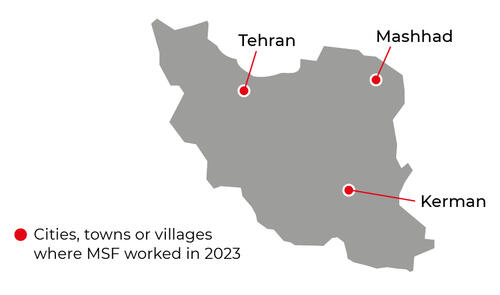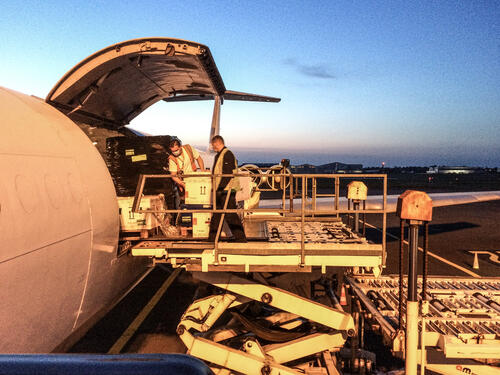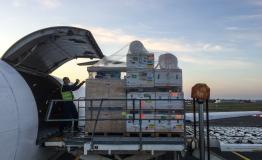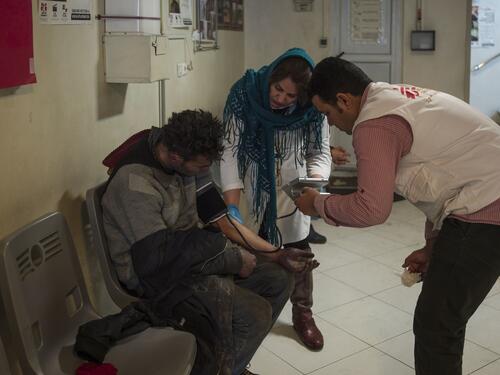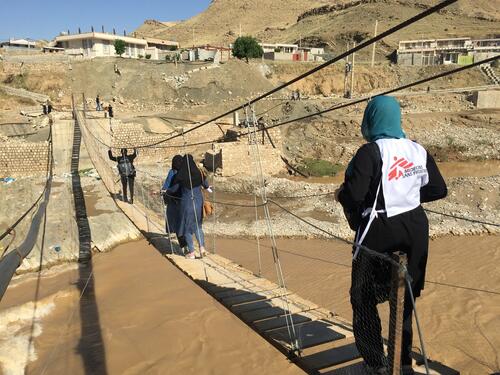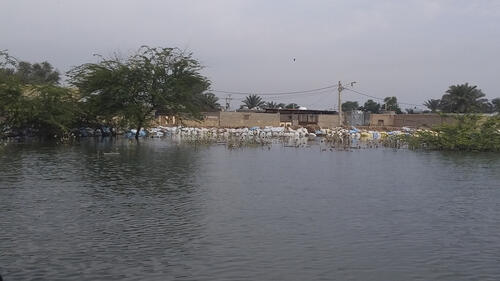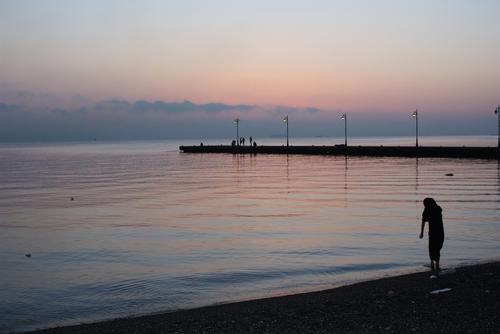Iran currently hosts the second-largest refugee population in the world, the majority of whom come from Afghanistan.* Approximately 750,000 Afghan refugees are officially registered in Iran, but according to a 2022 government-led headcount, there are at least 2.6 million living in the country, mostly undocumented.**
Although most of them live in urban settings, refugees experience difficulties in accessing medical services due to stigma and exclusion. They, and other marginalised groups, such as people who are homeless and people who use drugs, are especially susceptible to contracting communicable diseases such as tuberculosis (TB), hepatitis C, HIV, and illnesses linked to poor living conditions.
In South Tehran, we run a range of medical services through a health facility located in the Darvazeh Ghar neighbourhood and through mobile clinics. Our teams offer general healthcare, nursing care, mental health support, and treatment and referrals for hepatitis C and B, HIV, syphilis, and TB. We also provide midwifery services, and ante- and postnatal care.
In Mashhad, Iran’s second-largest city, located near the border with Afghanistan, we continue to run mobile clinics, conducting medical consultations and screening for infectious diseases. We also provide counselling, social support, health education, and referrals to specialist health facilities through our clinic in Golshahr district, where most of the Afghans in the city have settled.
In addition, we offer mental health support and treatment for hepatitis C to people who use drugs in rehabilitation centres in Torbat-e Jam’s ‘Guest City’, a government-run refugee settlement in Razavi Khorasan province.
Further south, in Kerman city, we are rehabilitating three health facilities, where we plan to run basic healthcare services for newly arrived and unregistered Afghan refugees.
*https://www.unhcr.org/ir/2023/06/14/iran-becomes-the-second-largest-refugee-hosting-country-as-forced-displacement-hits-new-record-high-globally/
**https://www.unhcr.org/ir/refugees-in-iran/
